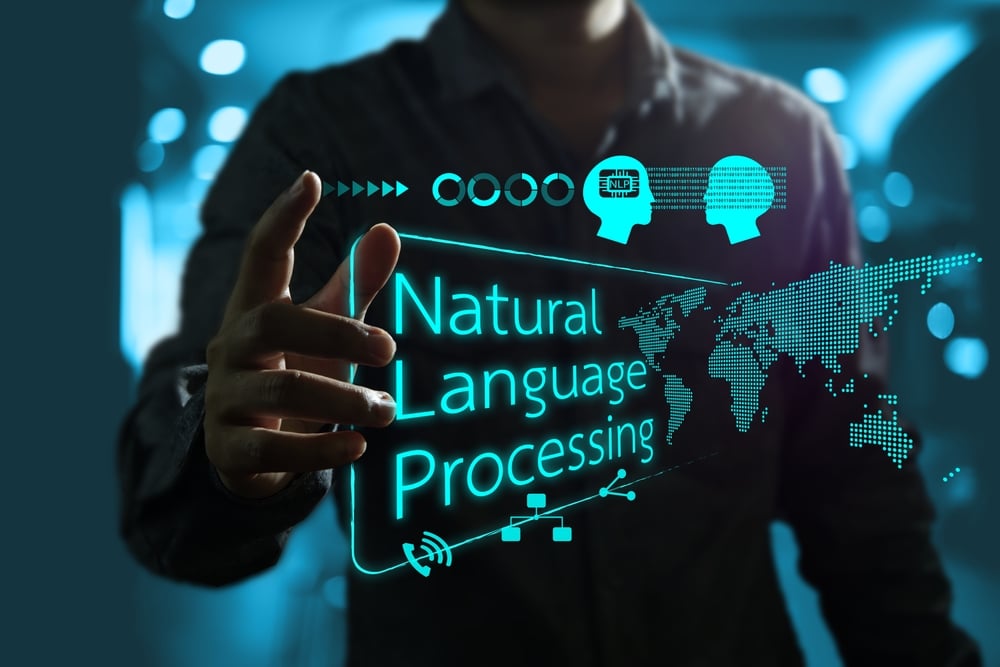Artificial Intelligence(AI), the science of making smarter and intelligent human-like machines, has sparked an inevitable debate of Artificial Intelligence Vs Human Intelligence. Indeed, Machine Learning(ML) and Deep Learning(DL) algorithms are built to make machines learn on themselves and make decisions just like we humans do. In an attempt to make smarter machines, are we overlooking the impact of AI takeovers on future careers? Would Human Intelligence face an existential crisis? Vivek Kumar, Managing Director at Springboard, demystified the myth of machines replacing humans at the Machine Learning Developers Summit 2020 (MLDS20). He highlighted the impact of humanness mentoring in building future technologies using AI/ML.
Artificial Intelligence Vs Human Intelligence (AI vs HI)
The vision of making machines that can think and act like humans has evolved from movie-fiction to real-world facts. We have long attempted to inherit Intelligence in Machines to ease our work. There are bots, humanoids, robots, and digital humans that either outplay humans or coordinate with us in many ways. These AI-driven applications have higher speed of execution, have higher operational ability and accuracy, while also highly significant in tedious and monotonous jobs compared to humans.
On the contrary, Human Intelligence relates to adaptive learning and experience. It does not always depend on pre-fed data like the ones required for AI. Human memory, its computing power, and the human body as an entity may seem insignificant compared to the machine’s hardware and software infrastructure. But, the depth and layers present in our brains are far more complex and sophisticated, that machines still cannot beat at least not in the near future! Here is a timeline predicting the whole idea of comparing both machine and human intelligence over a period of time.
AI Takeover: Can Machines Replace Humans?
Coming to the debate of Artificial Intelligence Vs Human Intelligence, recent AI achievements imitate human intelligence more closely than before, however, machines are still way beyond what human brains are capable of doing. The ability of humans to apply the acquired knowledge with a sense of logic, reasoning, understanding, learning and experience is what makes us stand out. With knowledge comes power, and with power comes great responsibility. Although Machines may be able to mimic human behaviour to a certain extent, their knowledge may fall apart when making rational decisions like us. AI-powered machines make decisions based on events and their association with them, however, they lack “common sense”. AI systems are clueless in the understanding of “cause” and “effect”. Meanwhile, real-world scenarios need a holistic human approach.
Although AI has made our tasks easier in many ways and is only getting better. But there have been AI epic failures that have raised questions about AI being a part of our lives:
1. When an Uber self-driving autonoumous car killed a pedestrian while under computer control, or
2. Like the AI-led IBM’s Watson Supercomputer recommended ‘unsafe and incorrect cancer treatments’, or
3. When AI-enabled facial recognition tool became biased towards coloured skin tones, which meant innocent people being wrongly identified as potential criminals.
AI specialists and data scientists today are focusing on ways to overcome such disasters in building the algorithms and improving AI’s ability. With accurate data, we soon might be able to improvise AI-technology that will coexist with our human ethics and efficiencies. We must incorporate natural human intuitions, instincts and reflexes in these AI machines to safeguard life-threatening situations. Also human accuracy, precision, timing, and quality judgement are vital factors that must be a part of AI input algorithms. Having that in mind, let’s get the part of how a human brain learns and adapts to these traits. Human Intelligence is powered by guided learning and mentoring, irreplaceable by AI
Deep learning (DL), a subset of AI (and a significant section of data science) uses the concept of Neural Networks that is very similar to the human nervous system and brain. Our Intelligence lies in adapted learning and in knowing how to apply the knowledge in real-world scenarios. In DL we imitate the ability of human brains to learn in different stages. We solve complex problems by breaking them down into levels of data. Wonder how well you read long fictional book years back and still can recollect your favourite character and the famous quotes?
Now, what if you were given technical documentation to read just as long or maybe shorter? You might barely be able to finish that without getting bored or aimless and remember bits and pieces of it. See, that’s how our brains are wired, we need to be able to correlate with what we observe and learn. This dwells on the fact that we need a personal connection with our sensory organs to develop an interest in what we learn. In short, when we try to learn something, we channel all our sensory capabilities towards it including emotions.
“Each one of us has a different emotional quotient and absorbs information in varying contexts and styles. The learning model that we adapt must include humanness and the frequency that matches our mindset,” Vivek mentioned. To be precise, AI cannot offer a real human touch to our learning journey.
Learning is not momentary; it is a gradual practice of absorbing information and processing it and eventually adds up to our experience. The learning experience differs in each being and is an invaluable asset in guiding and mentoring others. Mentor-guided learning not only helps you build skills faster but also enables career growth. A mentor brings in his/her real-time experience that makes your learning worthwhile in connecting with the real world. A coach guides you in your developing phase to help you understand things at a granular level, to synchronize and customize your learning behaviour at many human and emotional levels.
That’s how our education system shapes our thinking and with the same intention, online education has taken it a step further with human-led courses. Learning thought processes linked to human-led online education/ No Machines can Mentor like Humans
We live in the world of the internet, with tremendous amounts of information flowing at the blink of an eye. In spite of the best content available to us online, we sometimes deviate from our goal.
Vivek pointed out that in e-learning the risk of doing away with human touch altogether has the following consequences.
- It can lead to lack of motivation. As a solo contributor, we may give less attention to the challenge at hand and eventually end up not completing our learning journey. Having a mentor/human intervention brings humanness in learning preventing motivation issues in learners.
- It can lead to a lack of accountability. We all learn better and remain committed to our goals when we have someone to look up to, get inspired by and most importantly be accountable to. Humans are social animals; learning or anything for that matter demands a community to share openly and learn from others.
- And finally, a mentor is the one who gets you onboard to meet your goals. A mentor leads the way and helps you prepare for the career path that lies ahead. And, that’s the reason machines can never fully replace humans. Humanness in edtech is just one of the examples where humans will win over machines.
Get To Know Other Data Science Students
Samuel Okoye
IT Consultant at Kforce
Peter Liu
Business Intelligence Analyst at Indeed
Jonah Winninghoff
Statistician at Rochester Institute Of Technology
Humans, not Machines, Will Build the Future: Artificial Intelligence-Human Intelligence Interface
Going with the present data and our AI-advancements, language processing, vision, Image processing, development and common sense is still a challenge to machines and require human interventions. Since AI is still in its development stage, the future lies in how well we humans govern AI apps so that they abide by human values and safety measures. After all, like Nick Burns, SQL Services Data Scientist explained: “No matter how good your models are, they are only as good as your data…”
Prioritizing national security, the U.S. Department of Defence adopted a series of ethical principles for Artificial Intelligence. Likewise, AI has a whole new dimension of an endless pool of opportunities for humans to explore. We must focus on developing “Trustworthy AI” for a promising model for innovation and governance of AI, and look forward to embracing AI by upgrading our skills for AI-related software.
Related Read: AI vs. Machine Learning vs. Deep Learning: What’s the Difference?
Companies are no longer just collecting data. They’re seeking to use it to outpace competitors, especially with the rise of AI and advanced analytics techniques. Between organizations and these techniques are the data scientists – the experts who crunch numbers and translate them into actionable strategies. The future, it seems, belongs to those who can decipher the story hidden within the data, making the role of data scientists more important than ever.
In this article, we’ll look at 13 careers in data science, analyzing the roles and responsibilities and how to land that specific job in the best way. Whether you’re more drawn out to the creative side or interested in the strategy planning part of data architecture, there’s a niche for you.
Is Data Science A Good Career?
Yes. Besides being a field that comes with competitive salaries, the demand for data scientists continues to increase as they have an enormous impact on their organizations. It’s an interdisciplinary field that keeps the work varied and interesting.
10 Data Science Careers To Consider
Whether you want to change careers or land your first job in the field, here are 13 of the most lucrative data science careers to consider.
Data Scientist
Data scientists represent the foundation of the data science department. At the core of their role is the ability to analyze and interpret complex digital data, such as usage statistics, sales figures, logistics, or market research – all depending on the field they operate in.
They combine their computer science, statistics, and mathematics expertise to process and model data, then interpret the outcomes to create actionable plans for companies.
General Requirements
A data scientist’s career starts with a solid mathematical foundation, whether it’s interpreting the results of an A/B test or optimizing a marketing campaign. Data scientists should have programming expertise (primarily in Python and R) and strong data manipulation skills.
Although a university degree is not always required beyond their on-the-job experience, data scientists need a bunch of data science courses and certifications that demonstrate their expertise and willingness to learn.
Average Salary
The average salary of a data scientist in the US is $156,363 per year.
Data Analyst
A data analyst explores the nitty-gritty of data to uncover patterns, trends, and insights that are not always immediately apparent. They collect, process, and perform statistical analysis on large datasets and translate numbers and data to inform business decisions.
A typical day in their life can involve using tools like Excel or SQL and more advanced reporting tools like Power BI or Tableau to create dashboards and reports or visualize data for stakeholders. With that in mind, they have a unique skill set that allows them to act as a bridge between an organization’s technical and business sides.
General Requirements
To become a data analyst, you should have basic programming skills and proficiency in several data analysis tools. A lot of data analysts turn to specialized courses or data science bootcamps to acquire these skills.
For example, Coursera offers courses like Google’s Data Analytics Professional Certificate or IBM’s Data Analyst Professional Certificate, which are well-regarded in the industry. A bachelor’s degree in fields like computer science, statistics, or economics is standard, but many data analysts also come from diverse backgrounds like business, finance, or even social sciences.
Average Salary
The average base salary of a data analyst is $76,892 per year.
Business Analyst
Business analysts often have an essential role in an organization, driving change and improvement. That’s because their main role is to understand business challenges and needs and translate them into solutions through data analysis, process improvement, or resource allocation.
A typical day as a business analyst involves conducting market analysis, assessing business processes, or developing strategies to address areas of improvement. They use a variety of tools and methodologies, like SWOT analysis, to evaluate business models and their integration with technology.
General Requirements
Business analysts often have related degrees, such as BAs in Business Administration, Computer Science, or IT. Some roles might require or favor a master’s degree, especially in more complex industries or corporate environments.
Employers also value a business analyst’s knowledge of project management principles like Agile or Scrum and the ability to think critically and make well-informed decisions.
Average Salary
A business analyst can earn an average of $84,435 per year.
Database Administrator
The role of a database administrator is multifaceted. Their responsibilities include managing an organization’s database servers and application tools.
A DBA manages, backs up, and secures the data, making sure the database is available to all the necessary users and is performing correctly. They are also responsible for setting up user accounts and regulating access to the database. DBAs need to stay updated with the latest trends in database management and seek ways to improve database performance and capacity. As such, they collaborate closely with IT and database programmers.
General Requirements
Becoming a database administrator typically requires a solid educational foundation, such as a BA degree in data science-related fields. Nonetheless, it’s not all about the degree because real-world skills matter a lot. Aspiring database administrators should learn database languages, with SQL being the key player. They should also get their hands dirty with popular database systems like Oracle and Microsoft SQL Server.
Average Salary
Database administrators earn an average salary of $77,391 annually.
Data Engineer
Successful data engineers construct and maintain the infrastructure that allows the data to flow seamlessly. Besides understanding data ecosystems on the day-to-day, they build and oversee the pipelines that gather data from various sources so as to make data more accessible for those who need to analyze it (e.g., data analysts).
General Requirements
Data engineering is a role that demands not just technical expertise in tools like SQL, Python, and Hadoop but also a creative problem-solving approach to tackle the complex challenges of managing massive amounts of data efficiently.
Usually, employers look for credentials like university degrees or advanced data science courses and bootcamps.
Average Salary
Data engineers earn a whooping average salary of $125,180 per year.
Database Architect
A database architect’s main responsibility involves designing the entire blueprint of a data management system, much like an architect who sketches the plan for a building. They lay down the groundwork for an efficient and scalable data infrastructure.
Their day-to-day work is a fascinating mix of big-picture thinking and intricate detail management. They decide how to store, consume, integrate, and manage data by different business systems.
General Requirements
If you’re aiming to excel as a database architect but don’t necessarily want to pursue a degree, you could start honing your technical skills. Become proficient in database systems like MySQL or Oracle, and learn data modeling tools like ERwin. Don’t forget programming languages – SQL, Python, or Java.
If you want to take it one step further, pursue a credential like the Certified Data Management Professional (CDMP) or the Data Science Bootcamp by Springboard.
Average Salary
Data architecture is a very lucrative career. A database architect can earn an average of $165,383 per year.
Machine Learning Engineer
A machine learning engineer experiments with various machine learning models and algorithms, fine-tuning them for specific tasks like image recognition, natural language processing, or predictive analytics. Machine learning engineers also collaborate closely with data scientists and analysts to understand the requirements and limitations of data and translate these insights into solutions.
General Requirements
As a rule of thumb, machine learning engineers must be proficient in programming languages like Python or Java, and be familiar with machine learning frameworks like TensorFlow or PyTorch. To successfully pursue this career, you can either choose to undergo a degree or enroll in courses and follow a self-study approach.
Average Salary
Depending heavily on the company’s size, machine learning engineers can earn between $125K and $187K per year, one of the highest-paying AI careers.
Quantitative Analyst
Qualitative analysts are essential for financial institutions, where they apply mathematical and statistical methods to analyze financial markets and assess risks. They are the brains behind complex models that predict market trends, evaluate investment strategies, and assist in making informed financial decisions.
They often deal with derivatives pricing, algorithmic trading, and risk management strategies, requiring a deep understanding of both finance and mathematics.
General Requirements
This data science role demands strong analytical skills, proficiency in mathematics and statistics, and a good grasp of financial theory. It always helps if you come from a finance-related background.
Average Salary
A quantitative analyst earns an average of $173,307 per year.
Data Mining Specialist
A data mining specialist uses their statistics and machine learning expertise to reveal patterns and insights that can solve problems. They swift through huge amounts of data, applying algorithms and data mining techniques to identify correlations and anomalies. In addition to these, data mining specialists are also essential for organizations to predict future trends and behaviors.
General Requirements
If you want to land a career in data mining, you should possess a degree or have a solid background in computer science, statistics, or a related field.
Average Salary
Data mining specialists earn $109,023 per year.
Data Visualisation Engineer
Data visualisation engineers specialize in transforming data into visually appealing graphical representations, much like a data storyteller. A big part of their day involves working with data analysts and business teams to understand the data’s context.
General Requirements
Data visualization engineers need a strong foundation in data analysis and be proficient in programming languages often used in data visualization, such as JavaScript, Python, or R. A valuable addition to their already-existing experience is a bit of expertise in design principles to allow them to create visualizations.
Average Salary
The average annual pay of a data visualization engineer is $103,031.
Resources To Find Data Science Jobs
The key to finding a good data science job is knowing where to look without procrastinating. To make sure you leverage the right platforms, read on.
Job Boards
When hunting for data science jobs, both niche job boards and general ones can be treasure troves of opportunity.
Niche boards are created specifically for data science and related fields, offering listings that cut through the noise of broader job markets. Meanwhile, general job boards can have hidden gems and opportunities.
Online Communities
Spend time on platforms like Slack, Discord, GitHub, or IndieHackers, as they are a space to share knowledge, collaborate on projects, and find job openings posted by community members.
Network And LinkedIn
Don’t forget about socials like LinkedIn or Twitter. The LinkedIn Jobs section, in particular, is a useful resource, offering a wide range of opportunities and the ability to directly reach out to hiring managers or apply for positions. Just make sure not to apply through the “Easy Apply” options, as you’ll be competing with thousands of applicants who bring nothing unique to the table.
FAQs about Data Science Careers
We answer your most frequently asked questions.
Do I Need A Degree For Data Science?
A degree is not a set-in-stone requirement to become a data scientist. It’s true many data scientists hold a BA’s or MA’s degree, but these just provide foundational knowledge. It’s up to you to pursue further education through courses or bootcamps or work on projects that enhance your expertise. What matters most is your ability to demonstrate proficiency in data science concepts and tools.
Does Data Science Need Coding?
Yes. Coding is essential for data manipulation and analysis, especially knowledge of programming languages like Python and R.
Is Data Science A Lot Of Math?
It depends on the career you want to pursue. Data science involves quite a lot of math, particularly in areas like statistics, probability, and linear algebra.
What Skills Do You Need To Land an Entry-Level Data Science Position?
To land an entry-level job in data science, you should be proficient in several areas. As mentioned above, knowledge of programming languages is essential, and you should also have a good understanding of statistical analysis and machine learning. Soft skills are equally valuable, so make sure you’re acing problem-solving, critical thinking, and effective communication.
Since you’re here…Are you interested in this career track? Investigate with our free guide to what a data professional actually does. When you’re ready to build a CV that will make hiring managers melt, join our Data Science Bootcamp which will help you land a job or your tuition back!






